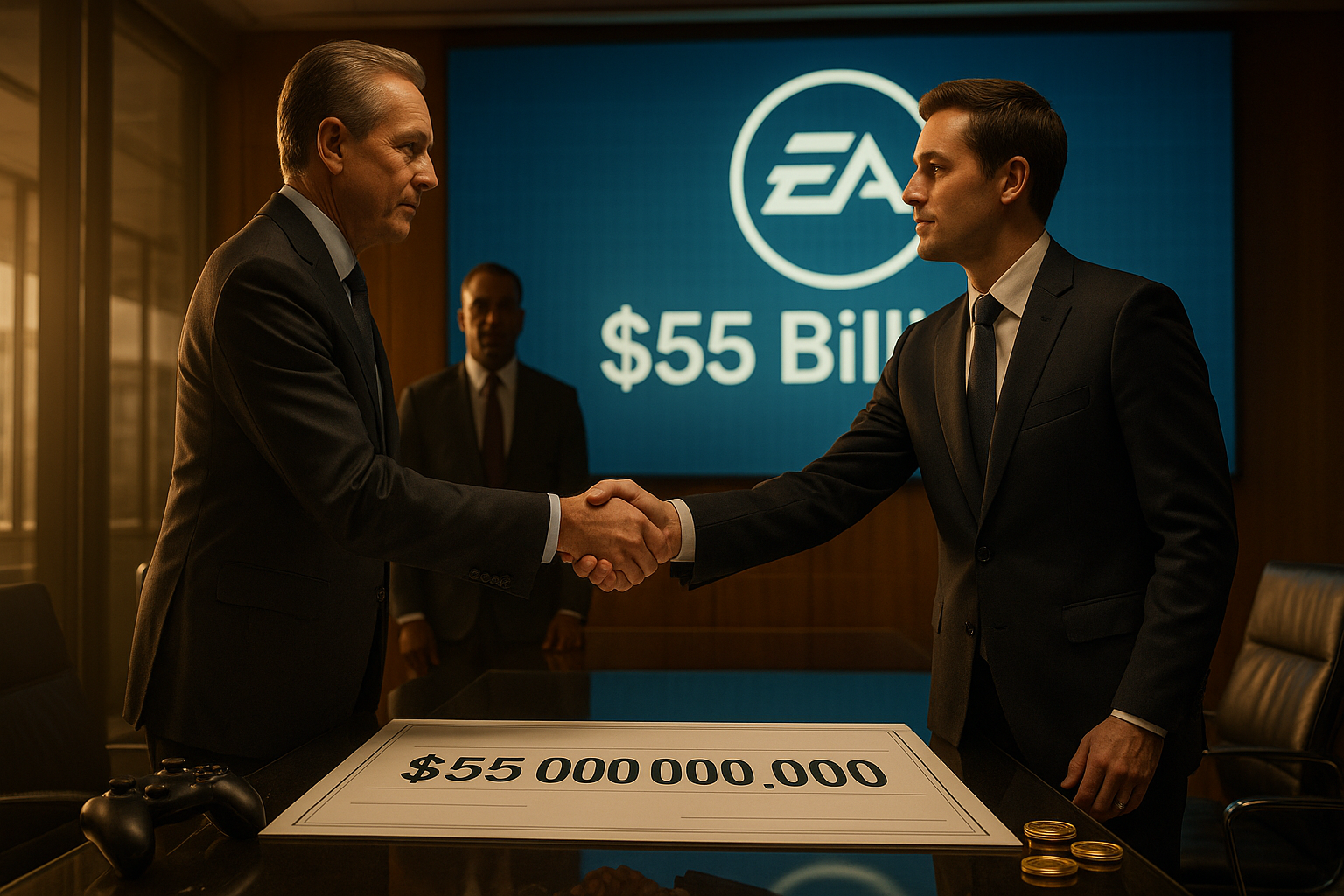Electronic Arts—the videogame behemoth that turned microtransactions into an art form—is now starring in its own high-stakes financial game. The maker of FIFA (sorry, EA Sports FC), Madden, and countless other allowance-draining franchises has agreed to be taken private in a whopping $55 billion deal.
Let that sink in. $55 billion.
The buyer? A consortium featuring Silver Lake, Saudi Arabia's Public Investment Fund, and—in a twist that reads like fiction—Jared Kushner's Affinity Partners. They're paying $210 per share, which represents quite the windfall for investors who've held through gaming's recent market turbulence.
There's something deliciously ironic about this whole situation. EA—a company that built an empire convincing gamers to pay $4.99 here and $9.99 there—just became the subject of the ultimate macrotransaction. It's like watching the master of nickel-and-diming getting swept off its feet by suitors with very, very deep pockets.
This deal shatters records. Remember Dell going private back in 2013 for $24.4 billion? That seemed astronomical then. This is more than double that size. The financial gymnastics required to structure a transaction this massive in today's interest rate environment would make even the most seasoned Wall Street veterans dizzy.
Now, about those buyers...
Silver Lake's presence makes perfect sense—they've been tech-focused forever and know the gaming landscape. But it's the Saudi PIF's involvement that raises eyebrows. The Kingdom's sovereign wealth fund has been on a gaming shopping spree lately, with stakes in Nintendo, Capcom, and Take-Two already in their portfolio. Apparently, "Vision 2030" includes ensuring Saudi Arabia dominates virtual pitches as aggressively as they're pursuing influence in real-world sports.
And then there's Kushner. The former presidential advisor's Affinity Partners (backed by—you guessed it—Saudi money) finds itself at the dealmaking table in what must be one of its most high-profile acquisitions yet. Whatever your politics, you've got to acknowledge the man's post-White House career has included some impressive dealmaking access.
But let's cut through the noise and ask the real question: Why this deal? Why now?
I've spoken with several financial analysts who point to EA's cash flow stability as the primary attraction. Gaming—particularly EA's sports franchises with their annual releases and in-game purchase ecosystems—generates remarkably predictable revenue. These titles are practically recession-proof. Kids will literally skip meals before they'll stop buying Ultimate Team player packs. (Having covered gaming finance since 2018, I've watched this phenomenon play out repeatedly.)
The debt markets will need to be... accommodating, shall we say... for this deal to close as structured. We're talking about a mountain of financing at a time when high-yield debt isn't exactly flowing freely. But perhaps the sovereign wealth involvement suggests a capital structure that doesn't follow the traditional PE playbook.
What happens next? The conventional wisdom would suggest cost-cutting, studio closures, and a laser focus on cash-generating franchises. But this isn't your typical PE deal. The gaming industry has been consolidating rapidly—Microsoft gobbled up Activision, Sony nabbed Bungie—and this move could be about creating a privately-held gaming powerhouse that can make bold strategic moves without quarterly earnings pressure.
For gamers, the implications are... complicated. Private ownership often accelerates the very trends players despise: more monetization, fewer creative risks. Then again, EA was already pushing these boundaries as a public company. Meet the new boss, same as the old boss?
Look, the symmetry here is almost too perfect. EA—the company that pioneered artificial scarcity in digital goods—is now itself being treated as a scarce asset. The publisher that convinced millions to pay full price for Madden every year with minimal changes is now being purchased by investors who likely plan to apply similar principles to corporate management.
This deal represents a $55 billion bet that interactive entertainment will continue its meteoric rise as the dominant media form of our century. And honestly? They're probably right.
After all, if there's one thing EA has demonstrated over decades, it's that people will pay a premium for the pleasure of competition—even when they suspect the game might be rigged.
